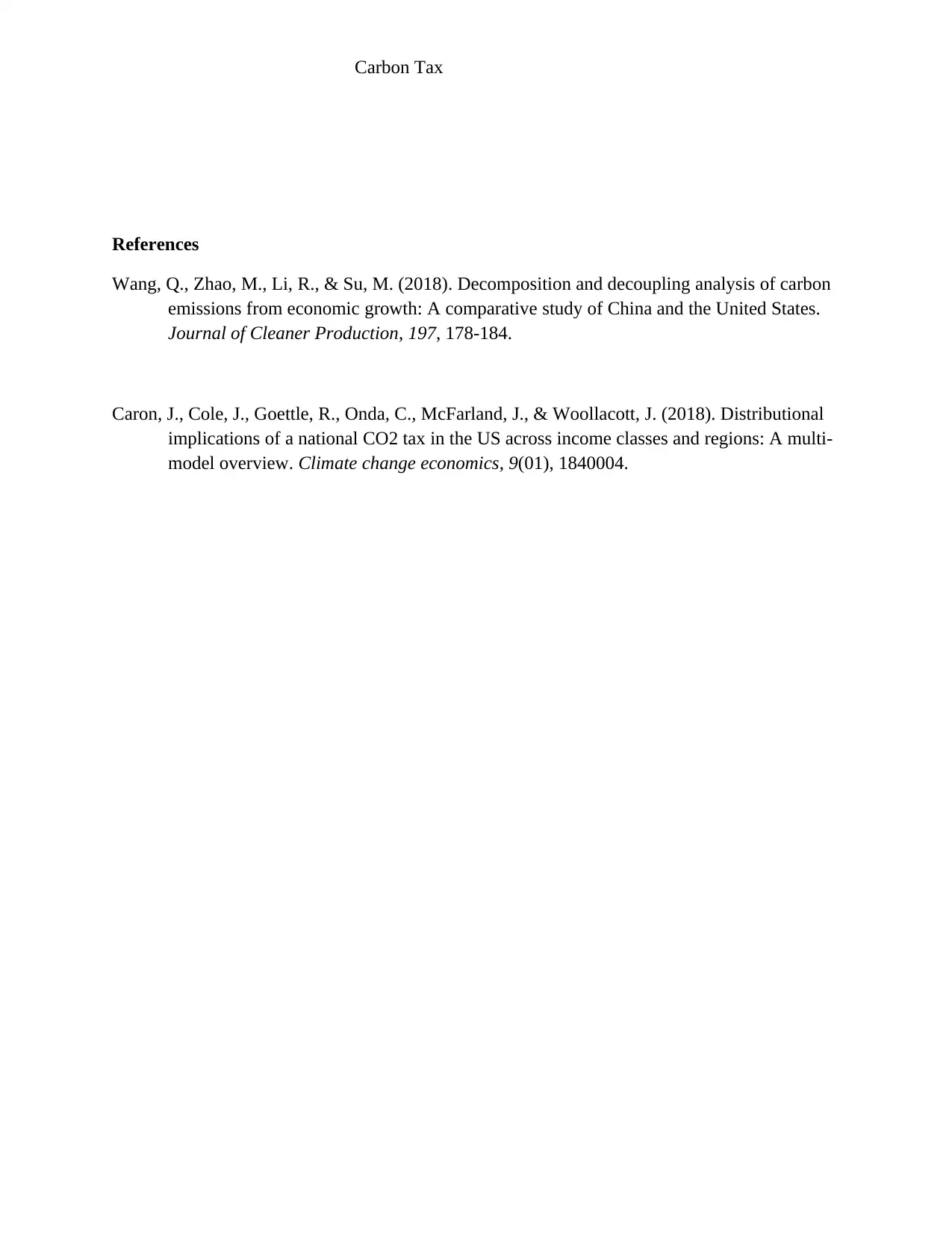Carbon Tax: Implications and Benefits for Environmental Science
VerifiedAdded on 2022/09/10
|3
|365
|19
Homework Assignment
AI Summary
This assignment examines the concept of a carbon tax and its potential impact on climate change. The author argues in favor of carbon tax, emphasizing its role in reducing carbon emissions and promoting the use of alternative energy sources. The assignment highlights the adverse effects of climate change, such as increased wildfires and extreme weather events, and supports the use of carbon tax to fund agencies involved in mitigating these effects. References are provided to support the arguments, highlighting the economic and environmental benefits of carbon tax. The assignment also discusses the revenue generated from carbon tax and how it can be used to promote cleaner energy and support government agencies dealing with climate change. Overall, the assignment presents a case for the implementation of a carbon tax as a crucial step towards combating climate change and promoting environmental sustainability.
1 out of 3








![Report on Solutions to Global Issues: Energy Use - [Course Name]](/_next/image/?url=https%3A%2F%2Fdesklib.com%2Fmedia%2Fimages%2Fiq%2F68676eb4df9840fcacdc201ca9f7c6e0.jpg&w=256&q=75)
![[object Object]](/_next/static/media/star-bottom.7253800d.svg)